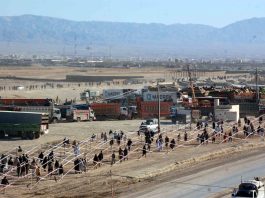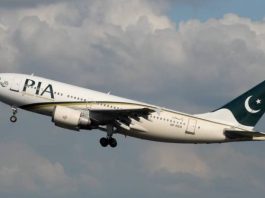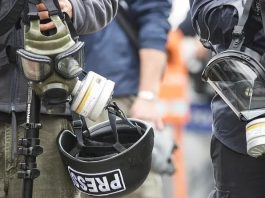Lahore: From nearly past two decades Pakistan has been facing challenges from extremist elements due to which security experts have been urging to devise a narrative that is grounded in enlightened and moderate views of Islam to counter effects of extremism.
Several measures have been taken to address this issue at a state level as well as by media organizations to temper hardliner views. One such example is a distinctive Ramzan show, ‘Islam and My Life’, being aired in a prominent local channel. Among a myriad of Ramzan shows vying for TRP rating and actively pursuing commercial interests this show stands out in its approach to highlight more meaningful topics and discussions which are rarely voiced in a conservative society like Pakistan.
The program is being hosted by a senior religious scholar and chairman Itehad-e-Ummat, Allama Zia-ul-Haq Naqshbandi. His organization, Itehad-e-Ummat has been working from past one decade with various religious scholars to promote harmony and develop a narrative that is acceptable to people of different schools of thought. Another outstanding initiative of the organization has been imparting contemporary education among madrassah students at Itehad-e-Ummat Islamic Centre.
While talking about his organization, Zia-ul-Haq Naqshbandi says: “There are many integral topics that remain untouched in Pakistan, but we decided to explore these topics under the light of Islam. Thus far at Itehad-e-Ummat we have organized over 40 conferences, which over 200 scholars and clerics of different schools of thought have attended. We opened these topics for discussion when extremism was on the rise.”
He further added: “We also especially organized a conference to condemn extremism and Taliban activities in the country. In it scores of clerics and scholars participated, who all mutually condemned the actions of Taliban. Similarly when news about recruitment of Pakistani women in ISIS first surfaced, we thought of giving women a platform to discuss and bring forth a more tolerant view of Islam. On this occasion we organized ‘Sheikhat-ul-Hadees Conference’ in which female scholars deemed participation of women in extremist activities an anti-Islamic act.”
It was through the platform of Itehad-e-Ummat that a fatwa was issued that first declared marriage of transgender permissible in Islam and hence initiated a debate at national level on a topic that was previously considered taboo. One misconception attached to the fatwa was that it intended to legalize same-sex marriages. While clarifying this misconception, the scholar says: “In Islam there is no provision for the same-sex marriage hence there is no way we can declare it permissible. This fatwa was only intended for transgender community but a great number of people fell prey to this misconception.”
Clarifying his stance he further added: “the fatwa did not only address the issue of marriage among transgender community but also highlighted the need to issue national identity cards for them and giving them their due share in inheritance”.
His unorthodox Islamic views are well reflected in his Ramzan special show, as mentioned earlier. The show has covered unconventional topics like “Islamic views on recreation”, “Modernization and Islam”, “environment and pollution”, “health and hygiene”, “time management in Islam”, “conservation of energy” and “Rights of non-Muslims in an Islamic state”.
In a program like “Islam and my life” there are great chances of having heated clashes among guests hence, maintaining an open-loop discussion without provoking anyone’s religious sentiments becomes challenging. While explaining to us how he manages such a sensitive task on his programme, the chairman said: “It happens very often that clerics and scholars tend to express their opinions in a passionate way but we have to guide them to maintain their composure and put forth their views in a rational manner according to the teachings of Islam. Scholars have been cooperative and thus we were able to conduct the show with productive discussions.”
The show has featured prominent scholars like Dr. Muhammad Hussain Akbar, Mualana Awais Sarwar, Syed Ziaullah Bukhari and Mufti Abubakar Aiwan. The participating scholars have expressed contentment with the format and have also urged other media outlets to produce more such programs.
A senior religious scholar, from Barelvi school of thought, Mufti Abu Bakar Aiwan speaking on this regard said: “this show has been constructive in portraying a positive image of Islam. Extremism remains our country’s leading challenge which can only be defeated by bringing awareness among public. If media cooperates in spreading a message of peace and harmony then overturning extremism shall be possible.”
A similar view point was put forth by an Ehl-e-Hadees scholar, Syed Ziaullah Bukhari, who states that topics under discussion in Zia-ul-Haq Naqshbandi’s show are of national interest. He also stresses upon the need to make public aware of the many commonalities among different sects to cultivate an air of tolerance and harmony.
This reflects willingness on part of religious scholars, regardless of their ideological differences, to work together and collaborate on producing a more inclusive narrative that helps countering extremism.
Chairman Human Rights Commission of Pakistan Dr. Mehdi Hassan states “It is imperative to produce more shows that portray a moderate and pragmatic view of religion. It cannot be denied that from the very onset of extremist activities in Pakistan, the role of media has been quite irresponsible. Armed forces alone cannot uproot extremism, media must play its part in making people aware of what approach to adopt amidst this crisis.”
Contrary to the predominant views of religious scholarship having hostile and rigid views towards scholars of different schools of thought from their own, this programme opens a possibility for a harmonious exchange of views and constructive discussions. If more media outlets can withdraw from their race for TRP ratings and instead focus their resources on quality of content then it will be possible to shape up a more moderate religious narrative that is imperative to counter extremism in the country.



